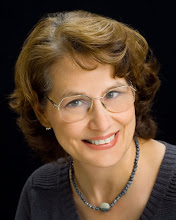As a new sewer, many of you are facing the hard task of buying a sewing machine and have asked me what I recommend. This is a very hard question to answer. I will give you my thoughts on this subject and hope that you form your own answers.
- Buy the very best that your budget will allow. You may be better off waiting till you can afford a better one than buying a "cheap $88 bargain". You have enough frustrating things to worry about learning all the rules of sewing, as a beginner. You shouldn't have to get frustrated over a machine that doesn't work properly. You may buy a cheapy that works great for years...but..speaking from the experiences that my students have had...don't buy cheap unless that is what is in your budget and you need one NOW. You can always upgrade.
- I have found that machines that cost, generally speaking, over about $300 are a better quality and will last much longer than the cheaper ones.
- I hear fewer complaints from my students from the following brands: Kenmore, Viking, Bernina, Baby Lock. On the other hand, I have heard the most complaints from Cheap Singers. Again, the ones that are a bit more expensive seem to work well.
- Don't buy a machine on Ebay. There is just too much that could be wrong with a machine
- Buy your machine from a place that offers service in their store. That is a sign of a quality business owner.They have to get certified to be able to service their brands.
- Make sure you ask about warrentees. Usually a machine will give you trouble in the first year, if it is a lemon.
- When you go "test-drive" a machine, take a piece of heavy denim with you and ask to sew on it. Double or triple fold it so it is good and heavy. All stitches look good on the fabric that the store sews it on. If the machine has a hard time going through your fabric then you know it isn't good. The stitching should look the same on both sides of the fabric.
- If you find a machine, say, at a garage sale, again, test it out on fabric. Look to see if it is dirty. Smell it to see if it smells like old oil. Bad thing. That means it hasn't been serviced in many years. On the otherhand, you can find some really good deals if you look second-hand. Remember...buyer beware.
- If you find a second-hand machine that seems to be good, have it serviced before you use it much. Servicing costs about $50-75 but is well worth it.
- The best way to buy a good machine is to ask people what they have...word of mouth.
